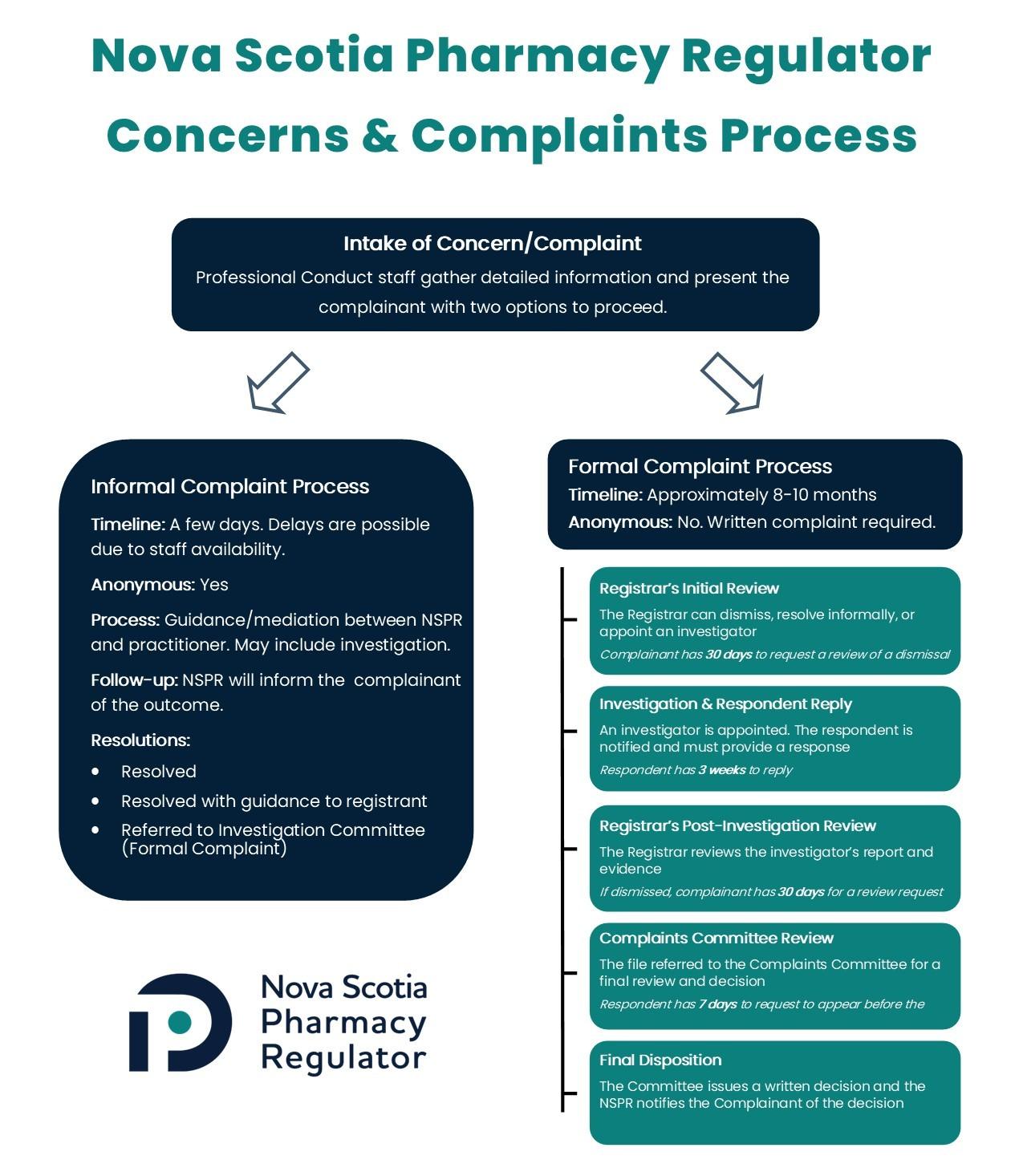Investigations
After a thorough examination of the information gathered with respect to the investigation of a complaint, the Complaints Committee will make one or more of the following decisions:
- Dismiss: It may dismiss the complaint and provide any guidance the committee considers useful to the complainant, the respondent or any other person associated with the complaint if the committee determines that:
- (i) the complaint is outside the jurisdiction of the regulatory body,
- (ii) the complaint cannot be substantiated,
- (iii) the complaint is frivolous or vexatious,
- (iv) the complaint constitutes an abuse of process,
- (v) the facts alleged, even if proven, would not constitute professional misconduct, conduct unbecoming the profession, incompetence or incapacity, or would not merit a caution, or
- (vi) the processing of the complaint would not advance the objects of the regulatory body
- Informal Resolution: The NSPR may informally resolve the complaint, including authorizing the respondent’s resignation from the register and any relevant category of licensing.
- Caution: The Complaints Committee may caution (warn) the pharmacy professional if the Committee determines that the pharmacy professional has breached the standards of professional ethics or practice, but in consideration of the circumstances, agrees that it does not constitute professional misconduct.
- Consent Reprimand: With the respondent’s consent, the Complaints Committee may order that the respondent receive a reprimand and that the reprimand be communicated to the respondent, the complainant and any other person the Committee considers appropriate.
- Conditions/Restrictions: With the respondent’s consent, the Complaints Committee may impose conditions or restrictions, or both, on the respondent’s registration or licence.
- Hearing: Where a determination is made that the matter warrants a hearing, the Complaint’s Committee may refer the matter to the Professional Conduct Committee.
- Fitness-to-Practise Referral: Where the matter may involve incapacity, the matter may be referred to the fitness-to practise process.
Hearings
The Professional Conduct Committee is a committee appointed by the board of the NSPR and is comprised of pharmacists, a pharmacy technician as appropriate, and members of the public.
The Professional Conduct Committee resolves matters referred to it by the Complaints Committee, and this could involve conducting a hearing – a formal process similar to a trial. When a complaint proceeds to this level, you are no longer the complainant (the NSPR becomes the official complainant), but you may be called to testify as a witness. If so, the NSPR’s staff and lawyer will help you understand the process.
The Professional Conduct Committee will hear both sides of the case and will make a decision. It may dismiss the charge(s) or, if it decides that professional misconduct did take place, it may take various actions against the pharmacy professional including to suspend or revoke their licence, restrict their right to practice, impose a fine, and/or issue a reprimand.
In most instances, the matter referred to the Professional Conduct Committee may be resolved with a Settlement Agreement between the NSPR and the pharmacy professional. A Settlement Agreement includes an admission by the respondent as well as the respondent’s consent to a specified disposition. It must still be approved by a Professional Conduct Committee, but it eliminates the need for a formal hearing.
The NSPR (including the Professional Conduct Committee) does not have the authority to order financial compensation for any harm that may have been done, or to direct how a pharmacy owner disciplines an employee.

